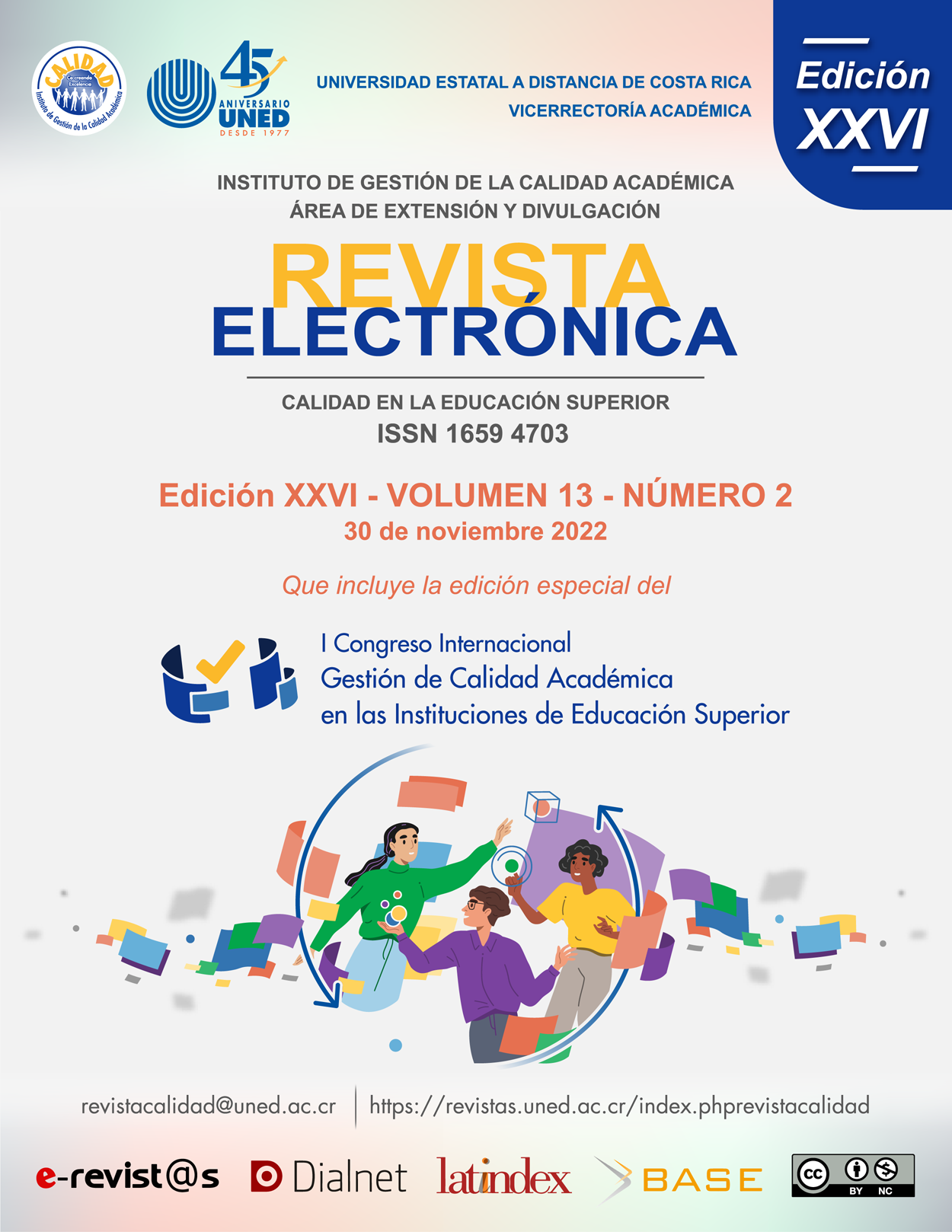Learning processes and educational challenges from the teaching perspective in the Costa Rican context of the pandemic –COLYPRO
DOI:
https://doi.org/10.22458/caes.v13i2.4484Keywords:
Learning process, working conditions, emotional competencies, educational challengesAbstract
In the context of the national emergency, social dynamics and educational services required actions to ensure the continuity of the teaching and learning process; provoking effects both in the student population and in teaching-administrative populations. Given this scenario, the construction of evidence that describes the effects of the measures taken in the learning processes and in the socio-labor conditions of the profession becomes imperative; as well as the gaps and emerging challenges for educational performance from the perception of educators. In response to this context, the College of Graduates and Professors in Letters, Philosophy, Sciences and Arts (Colypro), together with other instances, carried out a diagnosis of the effects on the socio-labor conditions of the profession and another study on the implications in the incorporation of digital technologies in learning processes. In such a way that, it was possible to establish the educational challenges for the learning process and generate lines of articulated work that respond to the demands detected.
References
Bisquerra, R. y Pérez, N. (2007). Las competencias emocionales. Educación XXI, 10, 61-82. https://www.redalyc.org/articulo.oa?id=706/70601005
Herrero Tejada, A., Fiszbein, A., Stanton, S. & Flórez, A. (2020). Cambios e innovación en la práctica docente durante la crisis del COVID-19. El Diálogo, 5. Washington D.C. https://www.thedialogue.org/analysis/practica-docente-durante-covid-19/
Martínez, J. & Garcés, J. (2020). Competencias digitales docentes y el reto de la educación virtual derivado de la covid-19. Educación y Humanismo, 22(39), 1-16. Colombia: Universidad Simón Bolívar. http://revistas.unisimon.edu.co/index.php/educacion/article/view/4114
Parra, T. y Uzcátegui, A. (2006). Desarrollo de las competencias comunicativas de los docentes en la gestión escolar. Revista de Artes y Humanidades UNICA, 7(17), 15-38. https://www.redalyc.org/articulo.oa?id=1701/170118739002
Portillo, M. (2020). Principales directrices y lineamientos emitidos por el Ministerio de Educación Pública durante marzo-junio 2020 con relación a la continuidad de los servicios educativos en el contexto de la pandemia COVID-19. Colypro.
Ruiz, M. & Aguirre, G. (2013). Quehacer docente, TIC y educación virtual o a distancia.
Apertura, 5(2), 108-123. México: Universidad de Guadalajara. https://www.redalyc.org/articulo.oa?id=68830444010
Rivero, I., Gómez, R. y Abrego, M. (2013). Tecnologías educativas y estrategias didácticas: criterios de selección. Educación y Tecnología, N°3, 190-206.
UNESCO (2020 a). Adverse consequences of school closures. París: Coalición Mundial
para la Educación COVID-19. https://es.unesco.org/node/320395
UNESCO (2020 b). Sistematización de respuestas de los sistemas educativos de América Latina a la crisis COVID-19. Buenos Aires: Instituto Internacional de Planeamiento de la Educación (IIPE). https://www.siteal.iiep.unesco.org/respuestas_educativas_covid_19
Vargas, L. (1994). Sobre el concepto de percepción. Alteridades, 4(8), 47-53. https://alteridades.izt.uam.mx/index.php/Alte/article/view/588/586
Downloads
Published
How to Cite
Issue
Section
License
Copyright (c) 2022 Revista Electrónica Calidad en la Educación Superior

This work is licensed under a Creative Commons Attribution-NonCommercial 4.0 International License.
Esta revista provee acceso libre inmediato a su contenido bajo el principio de que hacer disponible gratuitamente la investigación al publico, lo cual fomenta un mayor intercambio de conocimiento global.
